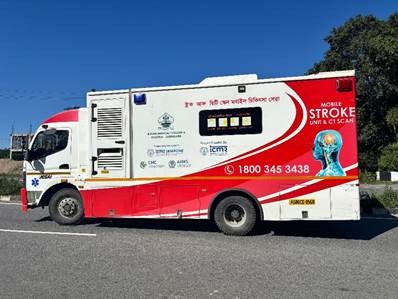
New Delhi, Jan 14 (IANS) A personalised and preventative approach may be crucial to enable timely interventions, help people get early treatment this winter at UK NHS, according to a report on Tuesday.
The report by leading scientific organisations The Physiological Society and PHG Foundation, proposes an innovative, data-driven solution aimed at transforming healthcare delivery.
It notes that a personalised and preventative approach would reduce the pressure and long-term costs for healthcare systems. It can also tackle the increasing burden of treating non-communicable diseases, including heart disease, stroke, cancer and diabetes, among the UK’s ageing population.
The proactive approach, named as ‘Physiology Passport’ — to be launched in the Houses of UK Parliament today — will be built on existing patient records and track and collect all health data (such as blood pressure, weight, cholesterol and blood sugar levels) for an individual over their lifetime.
This, the report said, would all be stored in their personalised health record. It is hoped that in the future combining this data with information from other sources, such as wearables and medical tests, it will be possible to build a detailed picture of a person’s health.
“The NHS is under immense pressure, and it’s clear that we need more proactive and integrated solutions to healthcare that shifts the focus from treating illnesses to preventing them. The proposed Physiology Passport would put an individual’s physiological data at the heart of the health system, enabling earlier detection, personalised care, and equitable access to prevention strategies,” said Dariel Burdass, Chief Executive of The Physiological Society,
The Physiology Passport relies on precision medicine, a healthcare approach that could help doctors and researchers more accurately predict treatment and prevention strategies for an individual, by considering the individual’s physiology, as well as their environmental, lifestyle, geographical and cultural background.
An integrative and physiology-led personalised medicine approach could optimise public health outcomes by offering a healthcare service that is tailor made to an individual’s needs rather than a one-size-fits-all approach.
The aim is to improve health outcomes, reduce healthcare system pressures, and help individuals lead healthier lives by working to detect early health changes; empower individuals to manage their own health; support healthcare providers; and enable proactive care.
The report also sets out a series of recommendations including shifting the healthcare model from reactive disease management to proactive prevention, establishing a unified health data infrastructure, adopting digital health innovations and implementing community-based care models.
“While molecular biomarkers such as genetics have proved valuable in the management of many diseases, the dynamic information provided by many physiological biomarkers will complement, enhance and provide context to genetic information,” said Dr Laura Blackburn, Head of Science, PHG Foundation.
The experts noted that the Physiology Passport is a unique opportunity to integrate varied and diverse biomarkers, defined characteristics that indicate biological processes in health and disease, to support personalised prevention.
–IANS
rvt/




